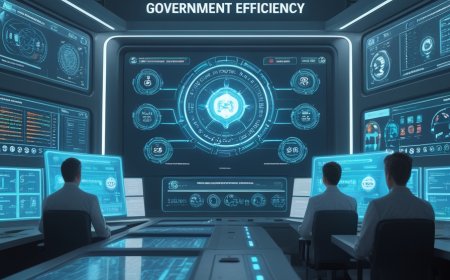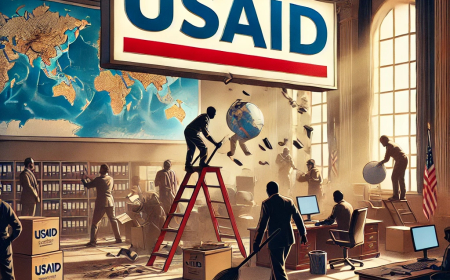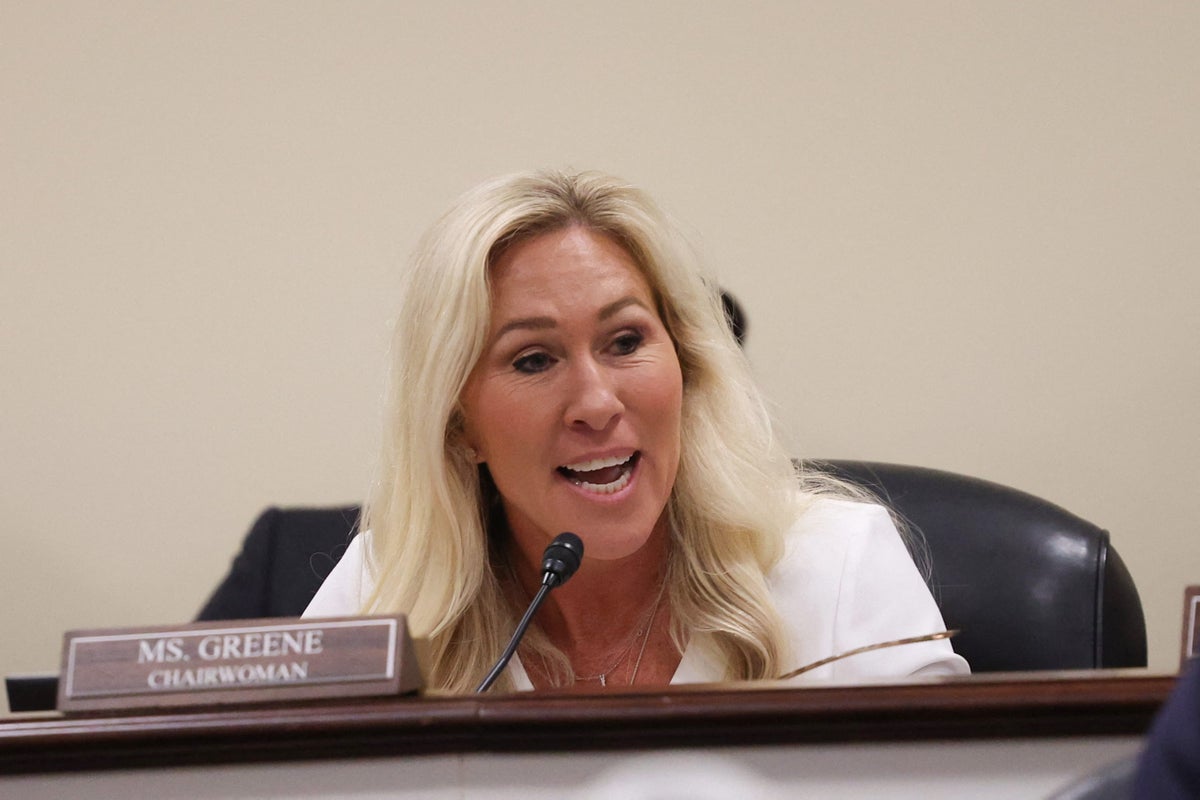5 things to know about US-Russia talks on Ukraine
Secretary of State Marco Rubio’s meeting with his Russian counterpart in Riyadh on Tuesday marked a major shift in U.S. relations with the country, ending a policy of isolation imposed after Russia’s full-scale invasion of Ukraine in February 2022. U.S. and Russian officials left meetings signaling a reset in the bilateral relationship, though no concrete...

Secretary of State Marco Rubio’s meeting with his Russian counterpart in Riyadh on Tuesday marked a major shift in U.S. relations with the country, ending a policy of isolation imposed after Russia’s full-scale invasion of Ukraine in February 2022.
U.S. and Russian officials left meetings signaling a reset in the bilateral relationship, though no concrete commitments toward ending Russia’s war in Ukraine.
“It was positive, upbeat, constructive, everybody there to get to the right outcome, solution-based,” said Steve Witkoff, President Trump’s special envoy for the Middle East.
“We couldn’t have imagined a better result after this session. It was very, very solid.”
Trump told reporters later Wednesday that the talks were going well and lashed out at Ukrainian President Volodymyr Zelensky for demanding a seat at the table.
“I hear they’re upset about not having a seat, well they’ve had a seat for three years and a long time before that. This could have been settled very easily," he said.
"You should have never started it,” he said at another point, referring to Zelensky.
Here’s five things to know about the first round of U.S.-Russia talks.
Trio of Trump diplomats joined two Russians at the table
Rubio, national security adviser Mike Waltz and Witkoff were the principals at the table for the U.S.
Retired Gen. Keith Kellogg, Trump's official envoy to end the Ukraine war, was notably absent, though the White House says he remains involved.
On the Russian side were Russian Foreign Minister Sergey Lavrov and Yuri Ushakov, a top foreign policy adviser to Russian President Vladimir Putin and Moscow's former ambassador to Washington.
Kirill Dmitriev, head of the Russian Direct Investment Fund, was also in Riyadh, though he was not present in photographs of the main talks on Tuesday.
“Dmitriev is a friend of the family, he is very close to one of Putin's daughters,” said Sam Greene, director for democratic resilience at the Center for European Policy Analysis.
“I think, if anything, he’s there to be Putin’s inherently trusted eyes and ears in the conversation — to make sure people like Ushakov and Lavrov don’t begin to freelance.”
Zelensky, who was not invited to the talks, postponed a trip to Saudi Arabia planned for Wednesday. He has criticized the U.S.-Russia talks, pushing Europe to demand a seat at the table and insisting that no decisions on ending the war can be made without Ukraine.
"Ukraine, Europe in a broad sense — and this includes the European Union, Turkey and the [United Kingdom] — should be involved in conversations and the development of the necessary security guarantees with America regarding the fate of our part of the world," Zelensky told reporters in Ankara.
Rubio said no one is being “sidelined,” and Waltz described the U.S.-Russia talks as “shuttle diplomacy.”
Rubio spoke with the foreign ministers of France, Germany, Italy and the United Kingdom, along with the EU’s high representative for foreign affairs, following the meetings in Riyadh.
“We’ll continue to push back on this notion that our allies haven’t been consulted,” Waltz said. “They are being consulted literally almost on a daily basis. And we’ll continue to do so.”
Trump and Putin expect to meet, Waltz said, but a date is not yet set.
US and Russia to restore staffing at embassies
Rubio said the U.S. and Russia will move quickly to restore staffing at respective missions in the countries that were drawn down over a host of tensions in recent years, including the Ukraine war and claims of espionage.
“If our diplomatic channels are broken, it’s going to be very difficult to consistently engage on a host of topics, including some unrelated irritants that could derail the broader talks on Ukraine,” Rubio said.
It’s not clear to what extent the embassy operations will be restored. Lynne Tracy is the current U.S. ambassador in Moscow, appointed and confirmed during the Biden administration. While U.S. consulates in Vladivostok and Yekaterinburg were suspended in 2021 and 2020, respectively, these are not expected to reopen.
In response to Russia’s full-scale invasion of Ukraine, the Biden administration expelled at least a dozen Russian officials working at the Russian mission to the United Nations. The U.S. accused those Russians of using diplomatic covers to shield intelligence work.
In October 2023, the U.S. also expelled two diplomats in retaliation to the Kremlin expelling two American diplomats from Moscow.
The Biden administration also expelled Russian diplomats in 2021 in response to the SolarWinds hack — a massive Russian intelligence breach of U.S. federal systems.
The Kremlin released at least two Americans in recent days in what the U.S. called a "welcome gesture" — though it's unclear if U.S. concessions were made in exchange. Last week, the White House released the accused Russian money launderer Alexander Vinnik in exchange for Moscow’s release of American Marc Fogel.
The State Department is advocating for the release of two other Americans held in Russia.
Both sides will appoint high-level teams to negotiate
Rubio said a “high-level” team will be appointed for ongoing talks, to include experts on technical topics, to engage with the Russian side on parameters to end the war.
He said there’s going to be engagement and consultation with Ukraine, America’s partners in Europe and others.
“But ultimately there are — the Russian side will be indispensable to this effort ... so that process will begin,” Rubio said.
The secretary said the goal is to negotiate an end to Russia’s war in Ukraine that is “enduring and acceptable to all the parties engaged.”
It’s not yet clear if any Ukrainians will be included in a “high-level” team. Zelensky called for Europe to nominate an envoy to any peace talks. Rubio said the European Union will eventually need to have a seat at the table, leading to possible discussions of lifting sanctions against Russia.
No details on concessions
Waltz offered only vague contours of what concessions might look like.
“We know just the practical reality is that there is going to be some discussion of territory and there is going to be a discussion of security guarantees,” he said.
Russia occupies about 20 percent of Ukrainian territory. It annexed Ukraine’s Crimean Peninsula in 2014, and it claimed control over four regions in Ukraine, even as its troops do not have full control over that territory.
Zelensky has proposed territorial swaps, after Ukraine took control of a small pocket of Russian territory in Kursk Oblast last year. Discussions about security guarantees for Ukraine are ongoing. The U.S. has signaled it wants Europe to take the lead in any military presence in and around Ukraine after the war, while the U.K. has said it's willing to send in troops. as peacekeepers.
Kyiv and its most strident supporters want Ukraine in NATO, arguing it would be the best deterrent against a renewed Russian aggression. However, the Trump administration has signaled that won't happen, noting Russia views a NATO neighbor as an existential threat.
Greene, from the Center for European Policy Analysis, said the lack of details coming out of the meeting is reassuring, in that it suggests U.S. and Russian officials did not reach agreements on substantive issues that would harm Ukrainian or European interests.
“I’m taking that as, cautiously, not apocalyptic. But beyond that we simply don’t know very much,” he said.
Plans to examine cooperation after the war
Rubio said the U.S. and Russia want to engage “at a high level” to talk about potential cooperation between the countries after the “end of the conflict in Ukraine.”
Economic cooperation featured in Rubio’s remarks. The U.S. has thousands of sanctions on Russia, ranging from sanctions against Putin, top officials and rank-and-file Russians involved in illegal activity, and the government has blacklisted Russian banks, banned certain exports to Russia and blocked imports to the U.S.
U.S. and Russian officials did not elaborate on details of any talks about potential cooperation.
But Europe holds about $300 billion in Russian assets frozen in the wake of the full-scale invasion against Ukraine. The U.S. holds about $5 billion. While Europe and the U.S. passed laws to use the proceeds from interests on frozen funds to serve as war reparations for Ukraine, Ukrainian officials say more needs to be done to access the full amount of Russian funds.
Another area of possible U.S. and Russian cooperation is nuclear nonproliferation talks. Trump proposed three-way nuclear arms talks between the U.S., Russia and China. Russia and the U.S. are at a stalemate in enforcement of a key nuclear arms treaty that is set to expire in 2026.
“Those trying to figure out — whether in Kyiv, Europe or indeed in Washington — how or where it might be necessary to engage in damage control, I think probably ought to pay less attention to the optics and warm fuzzies coming out of Riyadh, and look to see if there’s any movement toward something substantive,” Greene said.
“But at the moment, we're not actually seeing anything substantive. I'm taking that as my piece of good news for the day.”
What's Your Reaction?








































